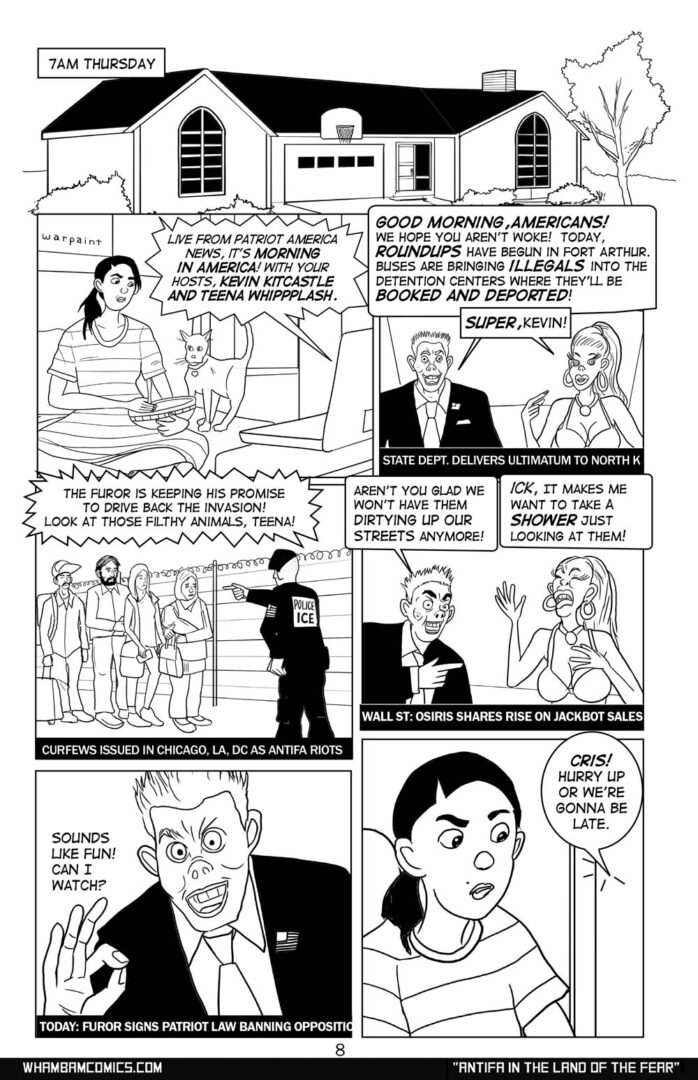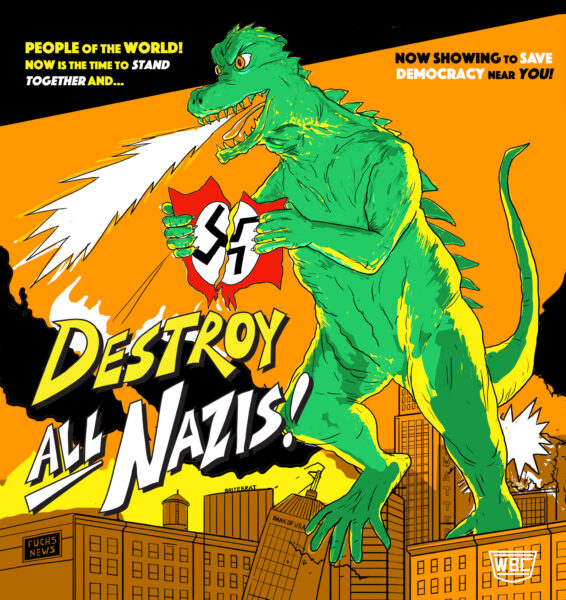
In this excerpt from Heaven or Here Issue #1, Cris watches the broadcast of “Morning in America” on Patriot America News. Hosts Kevin Kitcastle and Tina Whippplash focus on mass deportation the Furor is carrying out to fulfill his election promises.

In this excerpt from Heaven or Here Issue #1, Cris watches the broadcast of “Morning in America” on Patriot America News. Hosts Kevin Kitcastle and Tina Whippplash focus on mass deportation the Furor is carrying out to fulfill his election promises.

What happened to ordinary Germans who resisted against Hitler when he first began to rule in 1933?
When Adolf Hitler ascended to power in 1933, ordinary Germans who opposed his regime faced severe repercussions. The Nazi government swiftly enacted measures to suppress dissent, targeting political opponents, activists, and anyone perceived as a threat to their authority.
Political Opponents and Activists: Members of leftist parties, such as the Social Democratic Party (SPD) and the Communist Party of Germany (KPD), were among the earliest to resist Nazi policies. However, their opposition was met with brutal suppression. The Security Police (Sipo) dismantled these organizations through force, leading to arrests, imprisonment, and, in many cases, execution of their members.
Trade Unionists: Trade union leaders who opposed the Nazi regime were also targeted. In May 1933, the Gestapo arrested numerous trade union officials, confiscated their assets, and dissolved their organizations. This crackdown effectively eliminated organized labor resistance and consolidated Nazi control over the workforce.
Religious Figures: Clergy and religious activists who spoke out against Nazi policies faced persecution. For instance, Erich Klausener, a Catholic leader and president of Berlin’s Catholic Action group, was murdered during the “Night of the Long Knives” purge in 1934 after organizing rallies that criticized political oppression.
General Public: Ordinary citizens who expressed anti-Nazi sentiments, even in private conversations, were at risk. The regime encouraged a culture of surveillance and denunciation, where neighbors and colleagues could report dissenters to the authorities. Those reported often faced arrest, interrogation, and imprisonment in concentration camps.
In summary, ordinary Germans who resisted Hitler’s rule in 1933 encountered harsh and often lethal consequences. The Nazi regime’s extensive surveillance and brutal enforcement mechanisms effectively stifled opposition, instilling a climate of fear that discouraged dissent.
Editor’s note: Join forces with like-minded people now, and make sure to update your offline contacts!
Following the 2024 U.S. presidential election, domestic security assessments indicate a heightened threat environment. The Department of Homeland Security’s (DHS) 2025 Homeland Threat Assessment, released on October 2, 2024, highlights several key concerns:
In response to these assessments, federal, state, and local authorities are implementing enhanced security measures to safeguard public safety and the integrity of democratic institutions. The public is encouraged to remain vigilant and report any suspicious activities to law enforcement agencies.
You must be logged in to post a comment.